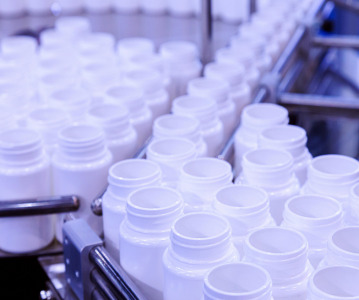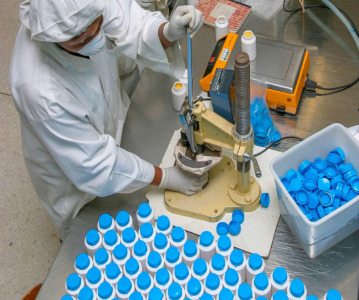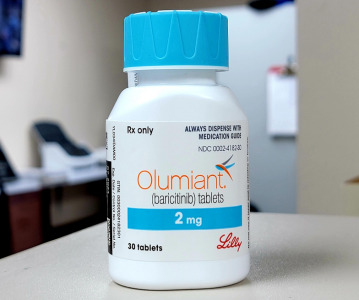New thin film technology to revolutionize vaccine storage and distribution

Up to 500 doses of vaccine to be placed on a single wafer-thin and stored for extended periods of time.
Jurata Thin Film, a company focused on revolutionizing how biologics are shipped and stored, is bringing to market a new technology that allows biologics and vaccines to be packaged, shipped and stored at room temperature for extended periods of time.
The first-of-its-kind technology enables up to 500 doses of vaccine to be placed on a single wafer-thin, 8.5" x 11" sheet of film, weighing one-hundredth of a pound (5 g).
Known as MSI-TX Thin Film, the technology represents a fundamental shift in biologic packaging and storage technology that removes the need for specialized storage containers and -80 ºC (-140 ºF) freezers that today are required to ship and store biologics.
MSI-TX Thin Film also removes the dependency on mass quantities of glass vials (currently in short supply) and removes virtually all distribution limitations.
The technology is a proprietary surfactant-stabilized cellulose matrix material, first published in 2015 by Maria Croyle, RPh, PhD, and her laboratory at the University of Texas College of Pharmacy, in Austin, TX.
The film itself, as well as the transfer and reconstitution process, have been thoroughly tested and are now ready for commercial use. This research advancement spurred the formation of Jurata Thin Film, headquartered in Chapel Hill, North Carolina, with research & development taking place in Austin, Texas.
"This is truly groundbreaking technology that can fill a critical need to meet the packaging and distribution challenges for COVID-19 vaccines," said Dr Croyle.
"8,000 uncut sheets of MSI-TX Thin Film can hold more than four million vaccine doses, can be distributed in envelopes through standard shipping methods to anywhere in the world and stored in a two-drawer file cabinet under a desk. Using current technology, this same amount of vaccine would require a 20-foot temperature-controlled container at either -20 °C (-4 °F) or -70 °C (-94 °F) to keep the vaccine viable."
Related News
-
News Women in Pharma: Moving beyond discussions and into best practice at CPHI Milan
In this second CPHI Milan special of our monthly series, we cover the key takeaways from the Diversity & Wellbeing track held on October 10, 2024. -
News AstraZeneca invests in AI collaboration for cancer drug trials
The British-Swedish pharmaceutical giant is partnering with biotechnology firm Immunai Inc to increase the efficiency of some cancer drug trials. -
News Ozempic and Wegovy prices questioned as Novo Nordisk faces US Senate hearing
The CEO of Novo Nordisk was grilled during a US Senate committee hearing on September 24, 2024, in which the exorbitant prices of the Danish company’s blockbuster drugs Ozempic and Wegovy were called into question. -
News The BIOSECURE Act: implications for the pharma supply chain
On September 9, 2024, the US House of Representatives voted to pass the bill titled the BIOSECURE Act (the Act), which lists several Chinese companies in the pharmaceutical supply chain. The Act will prohibit American companies from contracting or doin... -
News On Track at CPHI Milan: Thermo Fisher Scientific Track Sponsor interview
With CPHI Milan just around the corner, we sat down with some of the sponsors for this year’s conference tracks to discuss the most pressing topics in pharma. -
News CPHI Milan Speaker Spotlight: Pharma Manufacturing and Localisation in Africa
In the run-up to CPHI Milan, we sit down with some of the experts and thought-leaders speaking at this year’s conferences. -
News US BIOSECURE Act passed by US House of Representatives
The controversial act, which has already impacted several foreign companies operating in the US, was passed by the House of Representatives on September 9, 2024. It is now headed for the US Senate before it can be signed into law by President Joe Biden... -
News Eli Lilly licenses rheumatoid arthritis manufacturing in Africa
American pharmaceutical company Eli Lilly has signed a partnership with Egyptian organisation Eva Pharma to localise manufacturing of rheumatoid arthritis treatments in Africa.
Position your company at the heart of the global Pharma industry with a CPHI Online membership
-
Your products and solutions visible to thousands of visitors within the largest Pharma marketplace
-
Generate high-quality, engaged leads for your business, all year round
-
Promote your business as the industry’s thought-leader by hosting your reports, brochures and videos within your profile
-
Your company’s profile boosted at all participating CPHI events
-
An easy-to-use platform with a detailed dashboard showing your leads and performance

.png)





